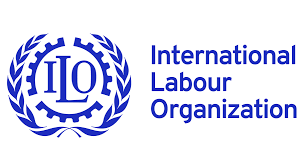Abuja, Jan. 20, 2024 (NAN) The Federal Government says it will expand its collaboration with the International Labour Organisation (ILO) to give Nigerians more access to social safety nets in the country.
Mrs Nkeiruka Onyejeocha, Minister of State for Labour and Employment, said this when she received a delegation from the ILO in her office on Friday in Abuja.
Onyejeocha said that the collaboration with the ILO was aimed to enhance the scope and impact of social protection initiatives in Nigeria and the potential to significantly improve the lives of many people.
According to her, everybody is entitled to social protection.
“Citizens need to be reassured on their protection by the government.
“I want to change the narrative. Labour is the number one ministry charged with the responsibility of pulling the nation out of high poverty and providing employment.
“We are not going to wait any longer in the implementation of vital programmes like social security. We are going to fast-track the implementation of social protection policy.
“I want to assure you (ILO) that we will key into the social protection vision, because I do not know any nation that can survive without employment, both in formal and informal sector.
“We are going to be fully involved. Labour is a ministry to watch, based on partnership with ILO and deliverables,” Onyejeocha said.
She also said that the partnership would focus on extending health insurance and reaching vulnerable populations among others.
The minister added that the collaboration also seeks to address poverty, health challenges and unemployment especially in the informal economy.
Earlier, Mrs Ngozi Anukwu, Deputy Director, Social Security Department of the ministry, said that in spite of challenges, the department pursues its core responsibility on social security.
Anukwu added that the department was working seriously as it concerns ‘Convention 102’.
Mr Dramane Batchabi, ILO Regional Social Protection Specialist, who led the delegation, said that there was need to expand social protection coverage in Nigeria.
Batchabi said that only 17 per cent of the Nigerian population was covered by social protection and that Africa was the lowest worldwide.
According to him, the average for the world is 46 per cent.
“If you look at West Africa, it is only 11 per cent of the population that is covered, and this is very low.
“We are looking at where the Ministry of Labour has comparative advantage, and where the ministry can come in.
“This is in terms of policy measure, considering the already existing National Social Protection Schemes, things to do to extend social protection to the informal economy.
“Also, how we can develop and extend social protection to workers in the informal economy, and how the ministry can contribute to better harmonise the existing social protection policy,” he said.
He said that the vast majority of Nigerians, over 80 per cent, operate in the informal economy and this further complicates the reach of existing social protection schemes.
He, therefore, said lack of funds among others pose a significant obstacle to expanding coverage of social protection in Nigeria and Africa.
Batchabi urged the ministry to tackle the challenges by deploying the National Social Protection Policy adopted in 2022 and other approaches within the Contributory and Non-contributory social protection schemes.
“It is important for the Ministry of Labour to look into the policy and know where to come in, the social assistance, social care, labour market intervention, and social insurance,” he said.
He also urged the government to optimise its interventions through the National Social Insurance Trust Fund (NSITF), a social protection agency under the ministry.
He added that this is by prioritising social insurance programmes and streamlining the fragmented social protection landscape as a crucial step toward sustainable progress.




